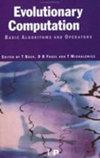Selection Heuristics on Semantic Genetic Programming for Classification Problems
IF 3.4
2区 计算机科学
Q2 COMPUTER SCIENCE, ARTIFICIAL INTELLIGENCE
引用次数: 1
Abstract
Individual semantics have been used for guiding the learning process of Genetic Programming. Novel genetic operators and different ways of performing parent selection have been proposed with the use of semantics. The latter is the focus of this contribution by proposing three heuristics for parent selection that measure the similarity among individuals' semantics for choosing parents that enhance the addition, Naive Bayes, and Nearest Centroid. To the best of our knowledge, this is the first time that functions' properties are used for guiding the learning process. As the heuristics were created based on the properties of these functions, we apply them only when they are used to create offspring. The similarity functions considered are the cosine similarity, Pearson's correlation, and agreement. We analyze these heuristics' performance against random selection, state-of-the-art selection schemes, and 18 classifiers, including auto-machine-learning techniques, on 30 classification problems with a variable number of samples, variables, and classes. The result indicated that the combination of parent selection based on agreement and random selection to replace an individual in the population produces statistically better results than the classical selection and state-of-the-art schemes, and it is competitive with state-of-the-art classifiers. Finally, the code is released as open-source software.分类问题的语义遗传规划选择启发式算法
个体语义已被用于指导遗传程序设计的学习过程。利用语义学提出了新的遗传算子和不同的亲本选择方法。后者是这一贡献的重点,提出了三种用于父母选择的启发式方法,即Naive Bayes和Nearest Centroid,这三种启发式方法测量了个体在选择父母时的语义之间的相似性,以增强加法。据我们所知,这是第一次使用函数的属性来指导学习过程。由于启发式是基于这些函数的属性创建的,因此我们仅在使用它们创建子代时才应用它们。所考虑的相似性函数有余弦相似性、皮尔逊相关性和一致性。我们分析了这些启发式算法在随机选择、最先进的选择方案和18个分类器(包括自动机器学习技术)下对30个样本、变量和类别数量可变的分类问题的性能。结果表明,基于一致性的父母选择和随机选择相结合来取代群体中的个体,在统计上比经典选择和最先进的方案产生更好的结果,并且它与最先进的分类器具有竞争力。最后,代码作为开源软件发布。
本文章由计算机程序翻译,如有差异,请以英文原文为准。
求助全文
约1分钟内获得全文
求助全文
来源期刊

Evolutionary Computation
工程技术-计算机:理论方法
CiteScore
6.40
自引率
1.50%
发文量
20
审稿时长
3 months
期刊介绍:
Evolutionary Computation is a leading journal in its field. It provides an international forum for facilitating and enhancing the exchange of information among researchers involved in both the theoretical and practical aspects of computational systems drawing their inspiration from nature, with particular emphasis on evolutionary models of computation such as genetic algorithms, evolutionary strategies, classifier systems, evolutionary programming, and genetic programming. It welcomes articles from related fields such as swarm intelligence (e.g. Ant Colony Optimization and Particle Swarm Optimization), and other nature-inspired computation paradigms (e.g. Artificial Immune Systems). As well as publishing articles describing theoretical and/or experimental work, the journal also welcomes application-focused papers describing breakthrough results in an application domain or methodological papers where the specificities of the real-world problem led to significant algorithmic improvements that could possibly be generalized to other areas.
 求助内容:
求助内容: 应助结果提醒方式:
应助结果提醒方式:


